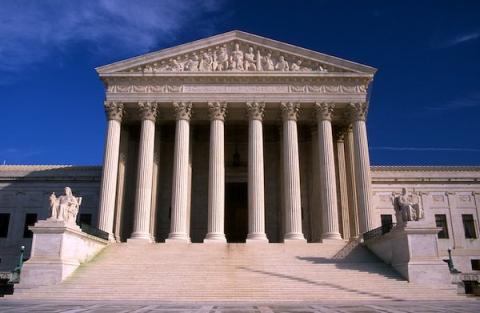On Tuesday, the Supreme Court of the United States struck down a key provision of the Voting Rights Act (VRA). The measure in question, designed to protect minority voters from discrimination, was ruled outdated and no longer necessary.
The 5-4 decision fell along ideological lines, as most 5-4 decisions do.
“Our country has changed, and while any racial discrimination in voting is too much, Congress must ensure that the legislation it passes to remedy that problem speaks to current conditions,” Chief Justice John Roberts wrote in the majority opinion.
The provision of the VRA stuck down by the Supreme Court created a formula for determining which states and local municipalities had to appeal to the U.S. Department of Justice before they can move forward with changes to current voting laws. The process is called 'preclearance.'
States and local governments have a sovereign right to establish their own voting laws. However, 'preclearance' was established to protect minority voters in states with a history of discrimination. To clarify, the Supreme Court didn't rule preclearance -- established in Section 5 of the VRA -- unconstitutional. It struck down the formula for establishing preclearance (Section 4) since the same method has been used for over forty years.
Voter discrimination still exists in the United States, but the issues are different than the type of voter discrimination that occurred before the VRA was passed in 1965. A new formula for determining preclearance is needed, but the dissenting opinion argued that was not the court's decision to make.
“In my judgment, the court errs egregiously by overriding Congress' decision,” stated Justice Ginsburg.
In fact, the VRA has been reauthorized several times since 1965 -- the most recent renewal being in 2006. Congress didn't believe there was a need to change the preclearance formula then, so the court's ruling does challenge Congress' authority to make such legislative decisions.
The implications of this decision can already be seen nationwide.
In Texas, Attorney General Greg Abbott said the Voter ID law passed in 2011, which was rejected by the Justice Department and has been tied up in the appeal process, "will take effect immediately." Redistricting maps passed in the Texas Legislature during the same session, he said, may also take effect without approval from the federal government.
In fact, the Texas Department of Public Safety said state-issued photo ID cards will be required to vote as of Thursday, June 27. While preclearance wasn't ruled unconstitutional, it was suspended since there is now no system in place to determine which states and local municipalities are subject to preclearance.
However, a federal court in Washington, D.C. has already upheld the DOJ's decision to reject Texas preclearance and an appeal is currently pending Supreme Court review. Since the Supreme Court has yet to rule on the matter and uphold the federal court's decision or overturn it, the rush to implement Voter ID in Texas should raise more than a few eyebrows.
States have a sovereign right to update their election laws, but they do not have a right to impose laws that may hinder the voting rights of specific groups which is why preclearance is an important system to have in place. However, only Congress can authorize a new formula for preclearance. Since members of the Legislative Branch can't agree on what color the sky is, it will likely be some time before a new system is established.
Credit: Wikimedia Commons
